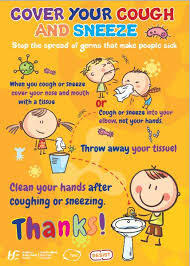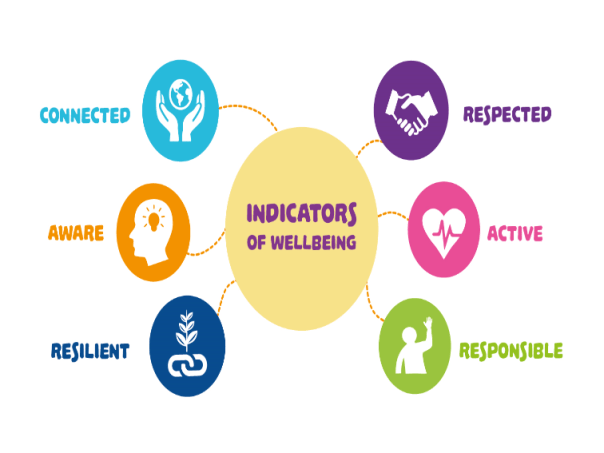Dear Parents
As you are aware there has been a couple of recent tragedies in our community that will impact you and your children in different ways and some young people will be more affected than others.
Normal feelings during this time include shock, disbelief and confusion. Your teenager might experience pain and sadness or anxiety, tension and despair and even hopelessness. It is really important for you to encourage them to talk to you and for you to listen to their thoughts and feelings. Do your best to maintain some kind of routine at home and try to keep an eye on online activity.
In the current crisis face-to-face supports are hard to access but if you are worried please pick up the phone and call your GP or CAREDOC on 1850 334 999. You can encourage them to use numbers including Samaritans 116 123; Pieta House 1800 247 247 or the Crisis Text Line, Text TALK to 086 1800 280, you, as a parent, can also access any of these supports. I know you might be reluctant during COVID-19 but if you are really concerned do contact your nearest Emergency Department.
Dear Student
Recently, very tragic events have happened in our community and these will affect you all in different ways. Supporting and looking out for each other is very important and it will take some time to come to terms with what has happened. You might be experiencing shock and disbelief, you may feel sad, anxious and afraid, under the circumstances these are normal feelings. Please reach out to your parents or family or to someone you can trust if you are finding things tough. Let them know what and how you are feeling. Here are some services that you can call, text or visit online to chat with a professional.
Samaritans Freephone 24/7 Call 116 123 or Email jo@samaritans.ie
Pieta House Freephone 24/7 Call 1800 247 247 or Text HELP 51444
Crisis Text Line 24/7 Text 086 1800 280 (Normal cost of a text)
Update March 13th 2020
Please click on the link below to see the most recent FAQs re: the Covid-19 – Coronavirus
Last updated: 10 March 2020
COVID-19 is a new illness that can affect your lungs and airways. It’s caused by a virus called coronavirus.
Symptoms of coronavirus
It can take up to 14 days for symptoms of coronavirus to appear.
The most common symptoms of coronavirus are:
- a cough – this can be any kind of cough, not just dry
- shortness of breath
- breathing difficulties
- fever (high temperature)
If you have any of these symptoms and have been to a place where there is spread of coronavirus, read this advice.
When you may need to call a doctor
For most people who have these symptoms now, it is more likely to be an infection that is not coronavirus.
You only need to phone a doctor if you have symptoms and any of the following apply to you:
- they are the type of symptoms you would usually contact a GP about
- you have travelled from an affected area
- you are a close contact of a confirmed case in Ireland – if you are, the Department of Public Health will contact you
Close contact
This is only a guide but close contact can mean:
- spending more than 15 minutes face-to-face contact within 2 metres of an infected person
- living in the same house or shared accommodation as an infected person
Anyone with symptoms of coronavirus who has been in close contact with a confirmed case in the last 14 days should:
- isolate themselves from other people – this means going into a different, well-ventilated room alone, with a phone
- phone their GP, or emergency department
- in a medical emergency (if you have severe symptoms) phone 112 or 999
When you may need to be tested for coronavirus
You will need to be tested for coronavirus if you have symptoms and have in the last 14 days been:
- in close contact with a confirmed case of coronavirus
- to a place where there is spread of coronavirus
Your doctor may also suggest you are tested for coronavirus if you have a severe lung infection.
If your doctor thinks that you need a test for coronavirus, they will tell you where the test will be done. They will also tell you when to expect your results.
Read this advice if you’ve been to a place with spread of coronavirus.
Risk of catching coronavirus in Ireland
There are confirmed cases of COVID-19 (coronavirus) in Ireland.
The risk of catching coronavirus in Ireland is still low to moderate. This may change. However, most people may continue to go to work, school and other public places, as usual.
Follow the advice on how to protect yourself and others from coronavirus.
If you have been in close contact with a confirmed case of coronavirus, a public health doctor will tell you this.
How coronavirus is spread
Coronavirus is spread in sneeze or cough droplets.
You could get the virus if you:
- come into close contact with someone who has the virus and is coughing or sneezing
- touch surfaces that someone who has the virus has coughed or sneezed on
As it’s a new illness, we do not know how easily the virus spreads from person to person. Spread is most likely from those who have symptoms.
The virus may only survive a few hours if someone who has it coughs or sneezes on a surface. Simple household disinfectants can kill the virus on surfaces. Clean the surface first and then use a disinfectant.
Follow this advice to protect yourself and others from coronavirus.
Packages from affected countries
You cannot get coronavirus from packages or food that has come from China or elsewhere.
There’s no evidence that animals or animal products legally imported into the EU are a health risk due to coronavirus.
Children and coronavirus
Follow this advice if your child has recently travelled to a place with a spread of coronavirus.
Encourage your child to wash their hands regularly and properly.
Read more advice on how to prevent your child from catching or spreading viral infections.
Treatment for coronavirus
There is no specific treatment for coronavirus. But many of the symptoms of the virus can be treated.
Supportive treatments, like oxygen therapy, can be given while your own body fights the virus. Life support can be used in extreme cases.
If you get the virus, your healthcare professional will advise treatment based on your symptoms.
Antibiotics do not work against coronavirus or any viruses. They only work against bacterial infections.
Vaccine
There is currently no vaccine to treat or protect against coronavirus.
The flu vaccine does not protect against coronavirus.
At-risk groups and coronavirus
We do not know for sure which groups are most at risk of complications if they catch coronavirus.
It is likely you are more at risk if you catch coronavirus and you:
- are 60 years of age and over
- have a long-term medical condition – for example, heart disease, lung disease, high blood pressure, diabetes or cancer
- are pregnant
You should follow the advice on how to protect yourself and others from coronavirus and other infections like flu.
Pets and coronavirus
There is no evidence that pets such as cats and dogs can catch or spread coronavirus.
Avoid all non-essential travel to China and Italy
Get up-to-date travel information from the Department of Foreign Affairs for travel advice on countries and regions affected by coronavirus.
The Department of Foreign Affairs has advised people to avoid all non-essential travel to China and Italy.
There’s a high risk of infection if you travel to a place where there is spread of the virus.
More information
COVID-19 updates – how the health service is responding to the global spread of coronavirus
Department of Foreign Affairs – updated travel information and advice
The Health Protection Surveillance Centre – information for health professionals
Update: Friday March 6th 2020.
A 3rd year trip to Trinity College Dublin took place on Thursday March 5th. late last night there was 1 confirmed case of the Coronovirus within the college. I spoke with the HSE at 8.30am this morning and the advice is as follows: “The risk is if your child was in direct contact with an infected person. If your child feels well then please just carry on as normal. If your child feels unwell, call yourGP as per HSE advice”. Just also to inform you that our students were not in the building that has been closed off, they visited 2 rooms and they spent most of the day outdoors. Ms. O’ Connor, Principal.
From HSE website:
If you have been to one of the places listed above and you are not feeling well, check if you have symptoms of coronavirus. These are a cough, shortness of breath, breathing difficulties, fever (high temperature).
If you do have symptoms of coronavirus, phone your GP or local emergency department (ED) without delay.
Do not go to your GP or ED. Phone them first. Tell them about your symptoms. Give them the details about your situation. Avoid contact with other people by self-isolating. If you do not have a GP, phone 112 or 999.
https://www.gov.ie/en/news/9771d5-statement-from-the-national-public-health-emergency-team/










